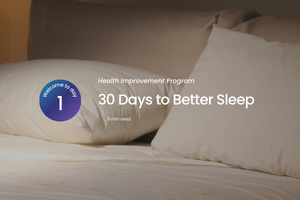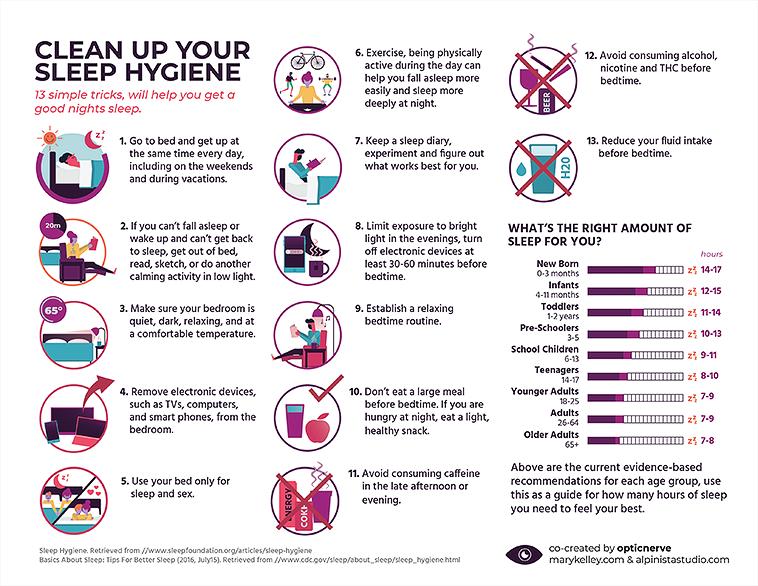
Keep your room dark, quiet, and cool.
Avoid late-night exercise, heavy meals, and stimulants.
Limit screens and practice relaxing activities before bed.
Manage stress earlier and let sleep happen naturally.
Good sleep hygiene is the foundation of restful, high-quality sleep. It involves making small adjustments to your daily routine and sleep environment to promote relaxation and help your body prepare for rest. Poor sleep hygiene can lead to disrupted sleep patterns and lower sleep quality, while practicing healthy sleep habits can make a significant difference in how well you sleep each night. Today, we’ll explore 16 practical sleep hygiene principles that can help you fall asleep faster, stay asleep longer, and wake up feeling more refreshed.

Keep your room dark, quiet, and cool.
Avoid late-night exercise, heavy meals, and stimulants.
Limit screens and practice relaxing activities before bed.
Manage stress earlier and let sleep happen naturally.
Good sleep hygiene is the foundation of restful, high-quality sleep. It involves making small adjustments to your daily routine and sleep environment to promote relaxation and help your body prepare for rest. Poor sleep hygiene can lead to disrupted sleep patterns and lower sleep quality, while practicing healthy sleep habits can make a significant difference in how well you sleep each night. Today, we’ll explore 16 practical sleep hygiene principles that can help you fall asleep faster, stay asleep longer, and wake up feeling more refreshed.

Avoid exercise within 3 hours of bedtime: Exercising too close to bedtime can leave you feeling too energized to relax. However, regular exercise earlier in the day can improve sleep quality.
Create a sleep-friendly environment: Use blinds, soft music, earplugs, white noise, air conditioners, or ceiling fans to block out noise and light. Ensure your mattress is comfortable and supports your sleep needs.
Keep your room dark: Block out light with well-darkened windows to prevent disturbances from streetlights or daylight.
Control background noise: A fan or white noise machine can mask disruptive sounds. Earplugs can significantly reduce noise levels and create a quieter space.
Maintain an optimal room temperature: The ideal temperature for sleep is between 60°F and 75°F.
Invest in a good mattress: People often invest heavily in cars but neglect their mattress, even though we spend 1/3 of our lives in bed. If sleep issues persist, consider investing in the best mattress you can afford and replace it regularly.
Avoid heavy meals close to bedtime: Eating a large meal before bed can strain your digestive system when you need to be relaxing. Opt for lighter, carbohydrate-rich snacks if you’re hungry.
Limit fluids in the evening: Reducing fluid intake a few hours before bed can help minimize nighttime awakenings. A good rule of thumb is to limit yourself to 1 cup of liquid within 4 hours of bedtime.
Avoid nicotine within 2 hours of bedtime: Like caffeine, nicotine is a stimulant that can interfere with your ability to fall and stay asleep.
Limit alcohol before bed: While alcohol may make you feel sleepy initially, it disrupts sleep cycles and leads to more wakefulness later in the night.
Avoid phone use close to bedtime: The bright light emitted from your phone can interfere with circadian rhythms and make it harder to fall asleep. Ideally, keep your phone out of reach when winding down.
Avoid going to bed worried or angry: Use the time before bed to unwind. If you’re feeling stressed, set aside time earlier to write down your concerns and set them aside for the next day.
Address sleep interruptions from your thoughts: Taking your problems to bed can cause them to surface during REM sleep, engaging your brain in problem-solving rather than restful sleep.
Allow your brain to unwind naturally: The brain’s focus and logical thinking functions are naturally relaxed in the middle of the night. Trying to solve problems during this time can lead to unnecessary worry and disrupt sleep.
Don’t try to force sleep: Sleep cannot be willed into existence. The act of trying to fall asleep can create stress and make it harder to relax. Instead, let sleep come naturally when you’re ready.
Practice relaxation techniques: Engage in calming activities before bed, such as deep breathing, meditation, or gentle stretching, to relax both your mind and body.

Neuropathy Commons. (n.d.). Sleep Hygiene [Graphic]. Neuropathy Commons. Retrieved December 20, 2024, from https://neuropathycommons.org/neuropathy/neuropathy-sleep/sleep-hygiene.

Action Item
Review the sleep hygiene tips above and identify any habits that may be hindering your sleep. Consider implementing changes tonight to improve your sleep quality.

THE DOCTORS BRAND™
America’s leading clinically proven nutraceutical brand for better sleep, less anxiety and less pain
*These statements have not been evaluated by the U.S. Food and Drug Administration. Our product is not intended to cure or treat any disease.
MDbiowellness
Contact us
(805) 977-5709
M-F 9am-5pm PT
hello@MDbiowellness.com
© 2023 MDbiowellness